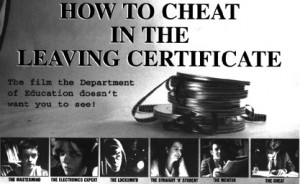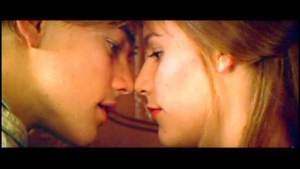 I’ve found myself thinking about plagiarism a lot since I started this website. There’s not much confusion about what it is – taking someone else’s language, thoughts, ideas or expressions and passing them off as your own – but there seems to be no consensus anymore as to whether or not it’s ok. Particularly when it comes to the leaving cert.
I’ve found myself thinking about plagiarism a lot since I started this website. There’s not much confusion about what it is – taking someone else’s language, thoughts, ideas or expressions and passing them off as your own – but there seems to be no consensus anymore as to whether or not it’s ok. Particularly when it comes to the leaving cert.
—
The major problem lies in the sheer volume of information your average teenager is expected to hold in their brain in order to sit this exam. If the teacher doesn’t provide a no nonsense, here are the essentials, forget about real learning synopsis of every aspect of the course, students and parents will look elsewhere. And who can really blame them? If it’s possible to fake knowledge and understanding and thus achieve an impressive set of results and entry into your college course of choice, why wouldn’t you? If there’s one thing we know about human beings, it is this. We do what works. If there’s a shortcut, we’ll take it.
—
So does rote learning work? In the short term, possibly, and it really depends on the subject. In the long term, not at all. You’ll go to college and suddenly independent thinking, critical analysis, originality and initiative are all expected of you. In fact I frequently hear college lecturers bemoan the months of effort they have to put into de-programming first year college students from the rote learning that has become second nature to them in secondary school. My focus on turning my students into better writers sometimes drives them to utter despair but a robotic ability to learn off reams of facts is not something I can ever or will ever view as anything but pointless.
—
There is no easy solution. Continuous assessment is wide open to plagiarism – you get your uncle the carpenter to do your woodwork project and voila, you’ve got an A. Reforming college entry is an obvious starting point – if you take away the points race, you remove the pressure on students and teachers to teach/learn to the test – but this solution is also riddled with problems. How else do you decide who gets into college? A lottery? Finally, reducing the number of subjects students study seems an obvious step forward, but is it right to narrow their exposure to the world of knowledge and ideas so early? And will students again just choose the ‘easy’ options? We already have a massive problem with a lack of uptake in Maths, Science and IT. Do we really want to make things worse?
—
As for English as a subject, 75% of the Junior Cert and 55% of the Leaving Cert you will not see until you turn over and read the exam papers. You can rote learn until the cows moo loudly at dawn but if you don’t twist what you’ve learned to suit the question you will not do well. And most importantly of all, you must be able to write well. Perhaps years of sample answers you’ve been encouraged to learn off do you the greatest disservice of all, because they undermine your opportunities to practise constructing clear coherent sentences of your own.
—
Finally, be aware that Ruairi Quinn has recently been quoted critiquing our fondness for predictable exam papers that don’t require students to think laterally, apply knowledge or demonstrate understanding. I think in coming years the exam papers will get less predictable. Whilst that makes me feel sorry for those of you desperate to get into your chosen college course, on some level it does make more sense to offer a genuine challenge. If only the stakes weren’t so high, I’d feel more supportive of it.
—






